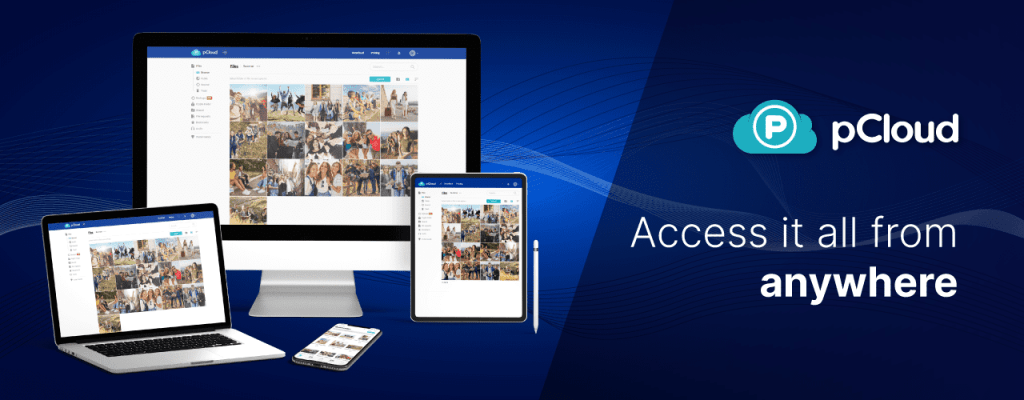The world of digital marketing can be a bewildering one for many newcomers, full of all manner of strange acronyms and jargon. Never mind SEO… what’s PPC, SEM or CRO? Or even SERP, UX, CTA, CTR, ROI, CPA, CPC, CPL, CPM, CMS or ALT?
We could go on. Without Googling, could you say what NAP, PA or DA stand for? And that’s without even getting into the various numbers that digital marketing types say all the time, like 301, 302, 200 and 404.
The good news is that with a bit of research, these acronyms and terms are far from intimidating. Digital marketers use them because they’re so important, but that doesn’t mean they’re terribly complex. In fact, they all involve fairly simple rules and processes that anyone can understand – whether or not they’ve done a course or spent a lifetime in digital marketing.
This raises a big question, though. If these types of marketing and marketing strategies aren’t very complicated, why isn’t every small or medium-sized business doing its own marketing?
There are several good reasons for that. But one that small businesses especially frequently cite, is a simple lack of time or resources to train themselves. This leads them to outsource to experts such as freelancers or agencies. It’s absolutely understandable for businesses to take this route, and it might turn out to be the right one for them.
You do have another option, though
Having to ‘learn’ marketing disciplines before being able to use them to make positive changes may not be possible for your small to medium-sized business, as it’s time-consuming and costly. However, there is something else you could do, that not all businesses actually know about.
That ‘something’ would be calling upon modern technology – or more specifically, software platforms – to shorten or cut out the ‘learning’ process, so that you can begin improving your brand’s marketing immediately.
When it comes to getting more people to visit your website, Google remains the most vital channel; it drives almost 60% of all website traffic. Achieving the best results on Google, though, depends on you mastering not only PPC – or pay-per-click – but also SEO.
SEO is short for search engine optimisation, and it’s all about enhancing the rankings that your website enjoys in the organic-driven results on Google. By that, we mean such things as the non-advertised listings, the news results, the voice search results, the map results, and so on.
But isn’t SEO a really specialised and complicated discipline, for which you need the expertise of seasoned professionals? There’s good reason to think that, not least given that Google uses more than 200 variables when determining where to rank a website in its search results.
So, if you want better rankings for your website in Google’s organic results, it almost goes without saying that you will need to get in touch with an agency. Right? Well, this is the orthodox wisdom, anyway.

Can you do SEO on a DIY basis, then?
The perhaps surprising answer, in 2020, may well be yes! That’s thanks to the rise of modern platforms, such as Hike, which draw upon up-to-date technologies to allow users to carry out SEO strategies and search engine-focused improvements to their own websites, without having to learn the discipline in-depth first.
So, how does Hike make this possible? After all, you might imagine it’s tricky to take a complicated field of marketing and enable anyone to easily use it, especially given the over 200 different ‘ranking factors’ that make the difference between a website’s SEO success and failure.
Even these ‘variables’, though – once you start looking at each and every one – are all relatively straightforward and easy to understand. Plus, they’re driven by data.
Let’s consider, for instance, that a key part of SEO is the creation of optimised content. That sounds like something only an expert could really grasp. However, it’s actually just the result of a series of specific actions to optimise a particular piece of content, ranging from the inclusion of the right keywords, right through to the usage of synonyms and related phrases and entity score, among other things.
Drilling down to such specifics is exactly what software is so brilliant at. This helps to explain the rise of software platforms, such as Hike, that make life easier for small businesses interested in beginning an SEO campaign. No longer are they forced to simply hire an SEO professional; they now have the option of doing it themselves.
But is DIY SEO effective?
Let’s cite an example of how impactful the right DIY SEO can be. Mr Cricket Hockey is a sports retailer and Hike customer that also has its own online store. Mr Cricket Hockey had long used freelancers and agencies for the optimisation of its ecommerce shop with Google’s organic rankings in mind.
However, they were dissatisfied with the service they received and the lack of improvements in their search engine results. They therefore considered other options, which led them to Hike. While they didn’t realise there was even such a thing as DIY SEO, they registered and began to implement the bespoke recommendations that the platform gave them for their website.
The results were just what they had been looking for. They were also well-timed, given how the recent coronavirus crisis has heightened the importance of ecommerce stores ranking well in the search engines. Mr Cricket Hockey has seen its site vaulted onto the first page of Google for 56 target keywords; meanwhile, its traffic from SEO has gone up by over 100% compared to last year.
If this sounds like the kind of impact you would like your own business to achieve in the search engine rankings, click through to find out more about Mr Cricket Hockey’s experience with Hike.
Even digital agencies could benefit
All of the above doesn’t spell bad news for agencies; quite the opposite, in fact. That’s because agencies and freelancers that are seeking to help their clients to boost the traffic and customers they receive via Google’s organic search can use this same technology to take greater control over SEO.
Once upon a time, an agency would have only been able to offer SEO-as-a-service to their clients if they had a seasoned and dedicated SEO consultant on their team to oversee such campaigns. Given how notoriously expensive it can be to hire a capable and experienced SEO professionals, you can probably understand why agencies have often preferred to avoid the big financial risk involved, by instead focusing on their traditional areas of expertise.
So, it’s great for these agencies that another option exists in the form of modern platforms such as Hike. They can simply turn to a software solution to immediately put themselves in a position to provide both new and existing clients with impactful and tailored SEO services, without the need to hire a seasoned SEO consultant.
This means they can market an ongoing SEO package to their client base, in the knowledge that the monthly recommendations provided by a platform like Hike will be useful for their clients. And as even non-experts can deliver SEO services using such technology, anyone already on their payroll can do so.
Transforming Streamwork Marketing’s delivery of SEO
One digital marketing agency that has realised such benefits is Streamwork Marketing. The business traditionally only provided web design and specialist marketing solutions, the latter of which did not include SEO.
Today, they serve their existing client base with ongoing SEO services, made possible by their use of Hike software. This, in turn, has delivered considerable benefits for their business and revenues.
In the words of Streamwork Digital founder Mat Baxter:
“Since our incorporation of the Hike software into Streamwork Marketing, we’ve onboarded and upsold SEO and other solutions as ongoing services to various small business clients of ours. This fiscal year, we’re on target to double our monthly recurring revenue, with the help of the further services generated from Hike SEO.”
You can find out more about how Streamwork Marketing has made the most of the functionality of Hike by reading the complete case study.
It isn’t just SEO that technology is reshaping
The chances are that you already know about other digital disciplines that have been upended by modern technology.
You might be aware, for example, of how Shopify allows non-experts to assemble online stores, or how Webflow enables the creation of JavaScript-based websites by people who otherwise have no experience of it. Or what about Bubble, which empowers non-experts to build progressive web apps, or Adzooma, which makes it possible for relative amateurs to explore PPC? Even tech novices can now automate an Amazon FBA business on their own to achieve higher search results rankings.
These are just a few of the big players showing how, as technology advances, businesses can be helped to more easily attain and afford the benefits of such evolutions via cost-effective software platforms.
You do, of course, still have the option of hiring an agency to oversee your firm’s SEO campaigns, or you could embrace the DIY possibilities outlined above. Regardless, there’s no doubting the exciting future for all things digital, especially from the perspective of small to medium-sized businesses.








